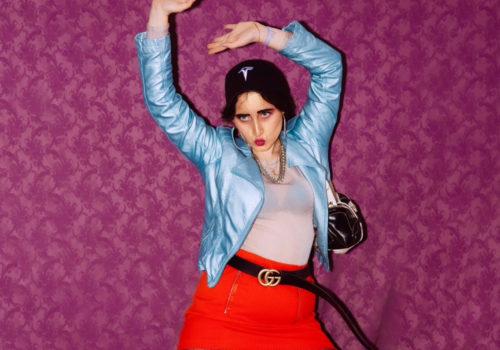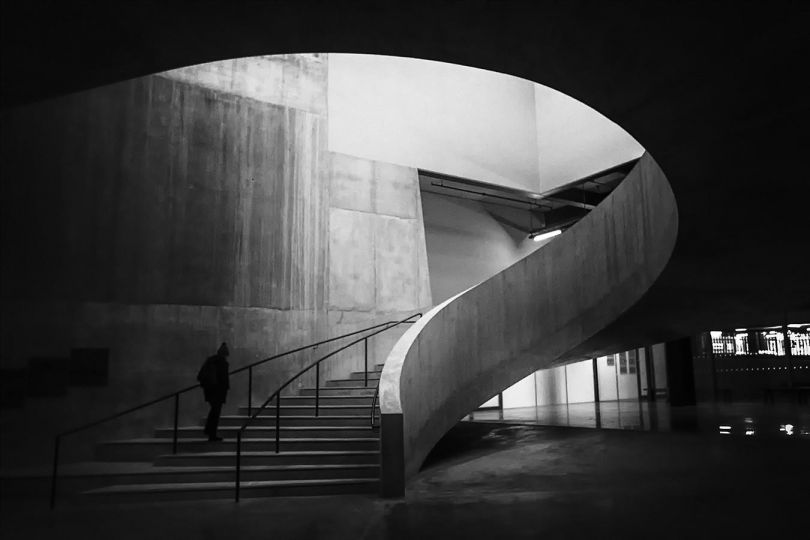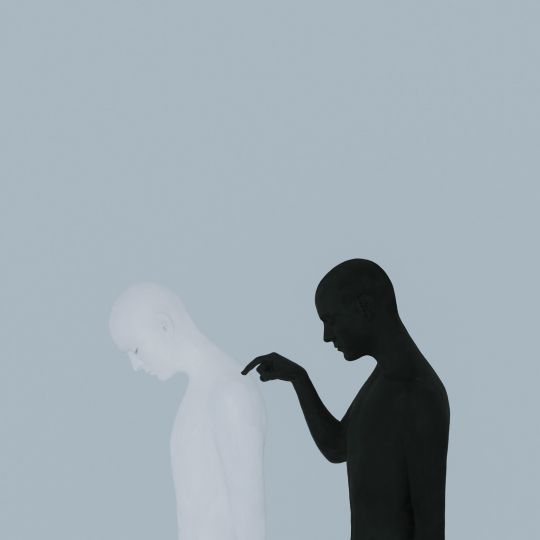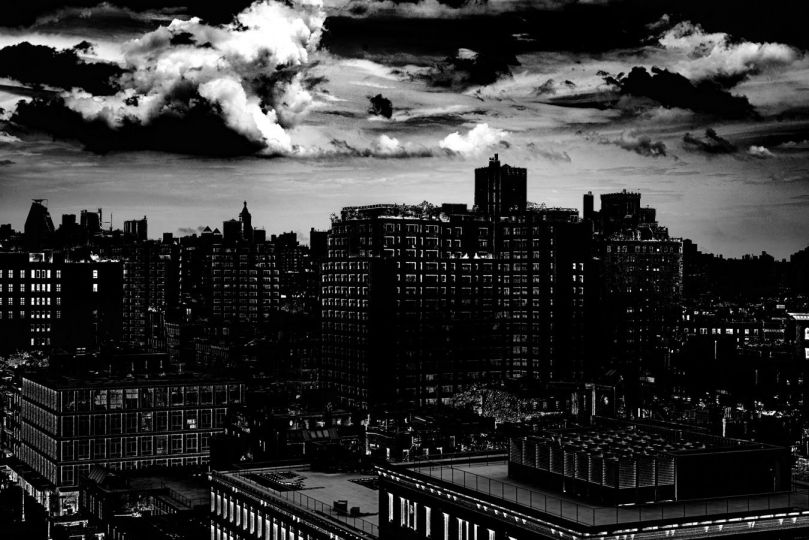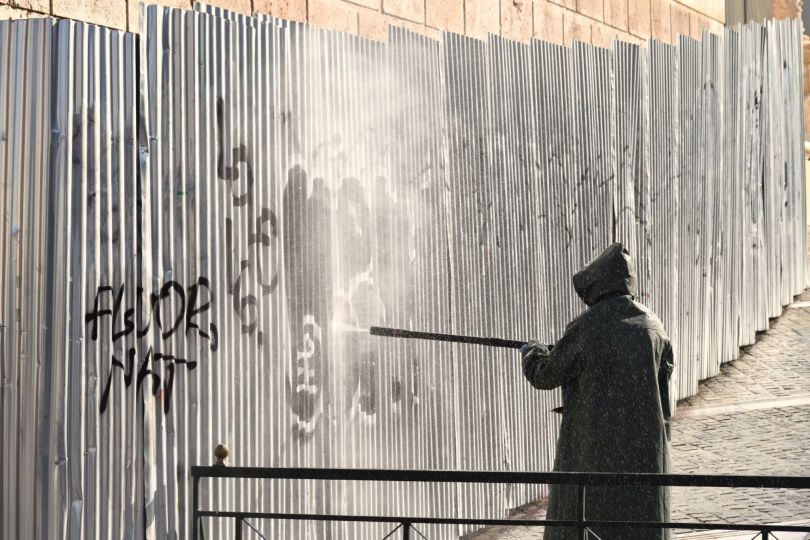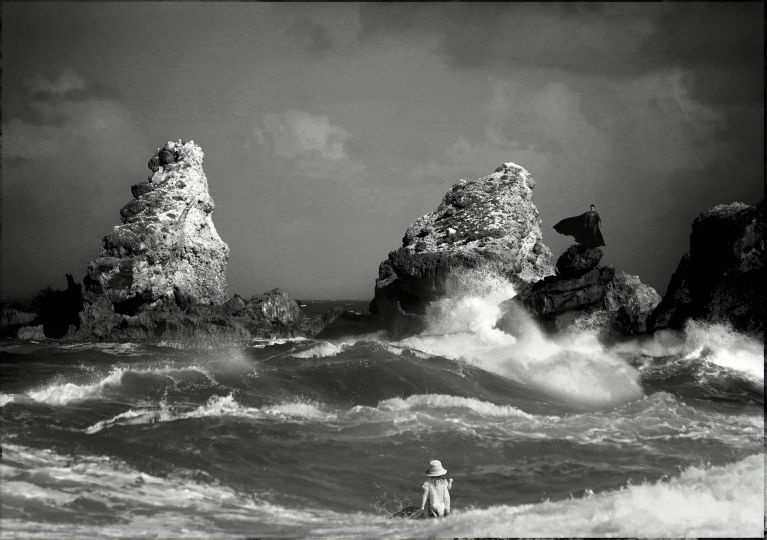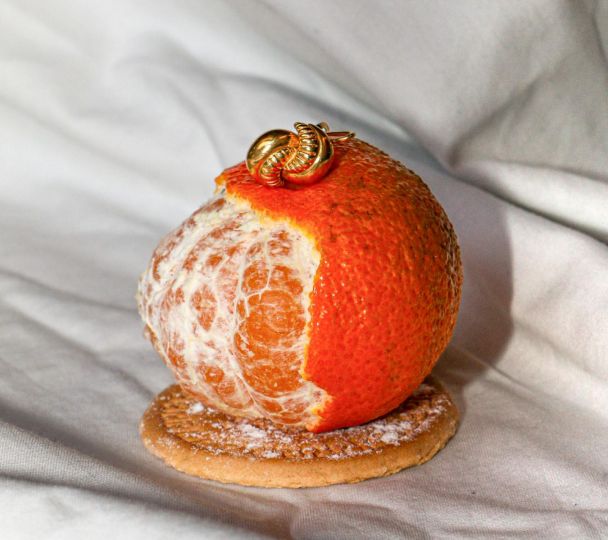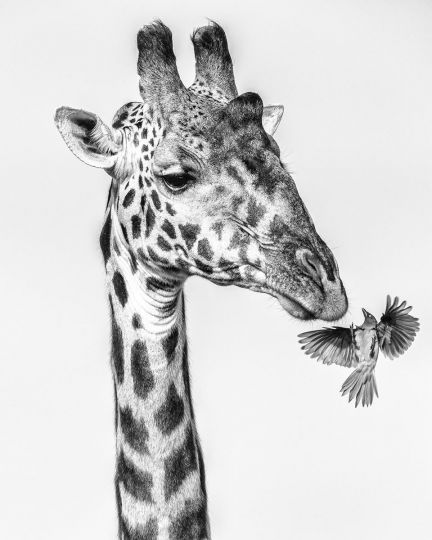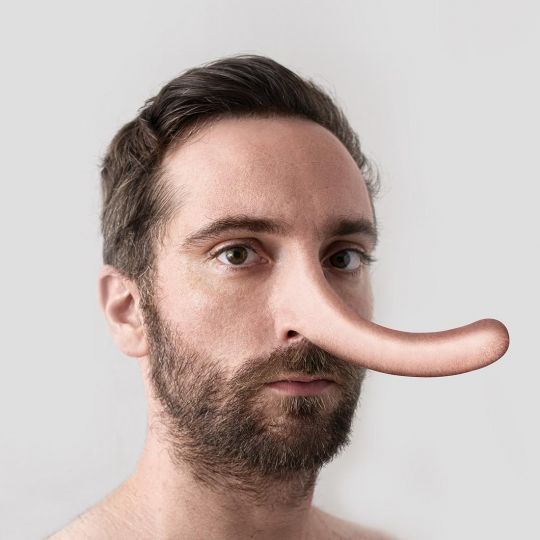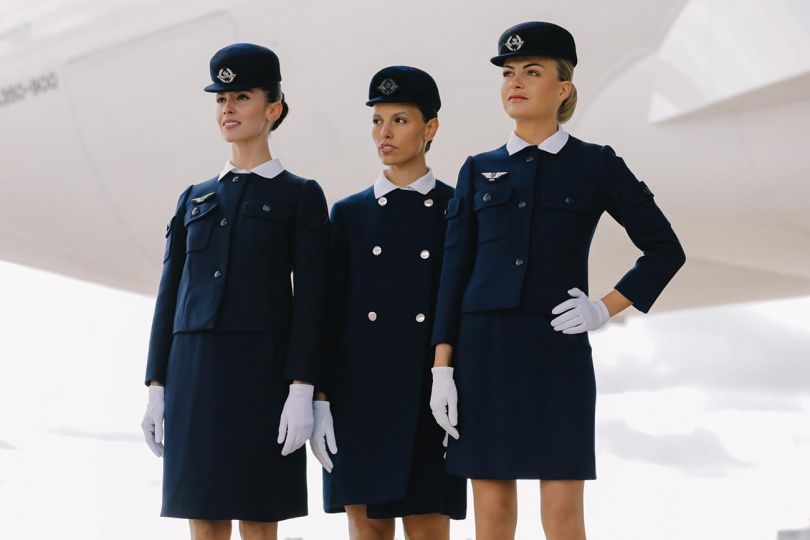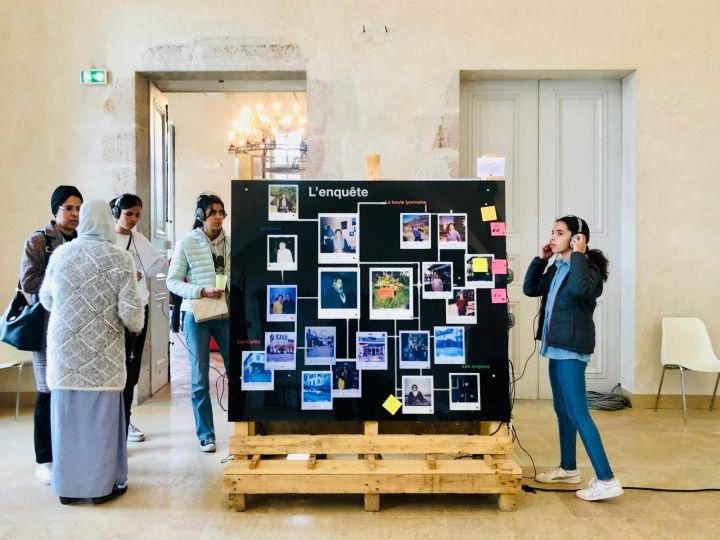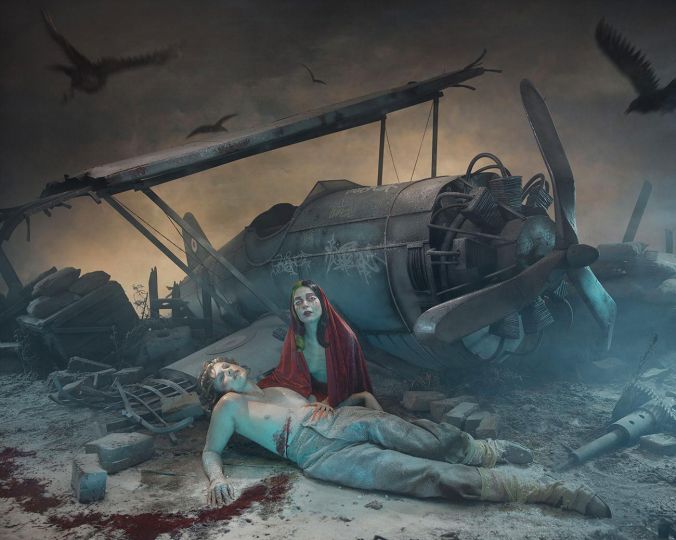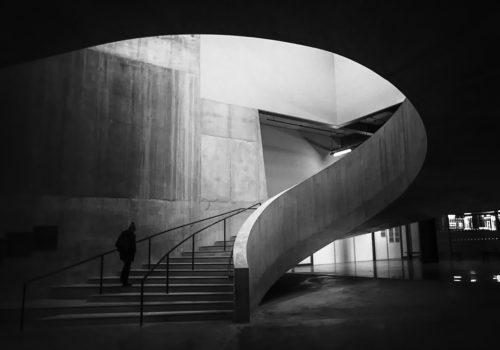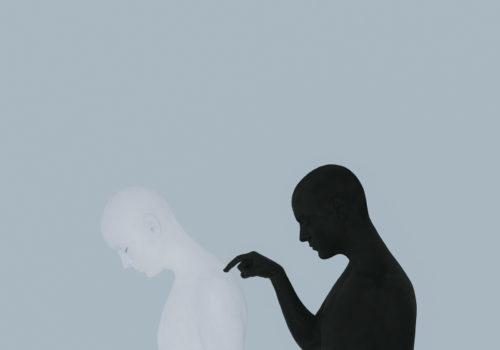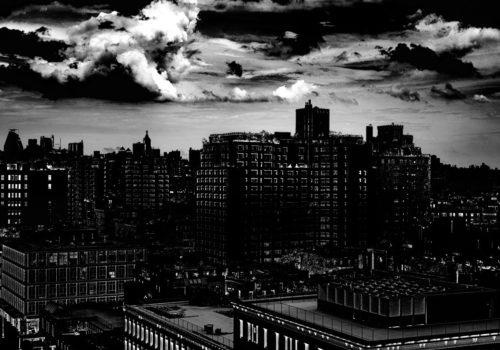Last year, I got a chance to work with a group of Polish photographers, following an invitation by curator Jens Pepper, and discovered the work of Karolina Wojtas. One of her images particularly stuck in my mind: a boy, eyes closed, whose face is covered by a green plastic bag. Shockingly brutal yet somehow innocent, this and other photographs I encountered during the show, testify to the punch and power of Wojtas’s work. I wanted to know more about the story behind her provocative genre-bending work and her upcoming solo show at C/O Berlin, so I invited her to tell me what’s new.
Nadine Dinter: You and your brother – what a combination! When did you realize that your best model would be “in-house”? What made you decide to work with him?
Karolina Wojtas: I always dreamed about working with the best models and being in that professional world, but getting my foot in the door was tricky.
When I started studying photography, I thought I needed professional people to work with, but it was intimidating. Still, I had to do my homework and projects, so I asked my family to help. I quickly realized it was the best option! With family or friends, I can ask them to do anything, plus they have a lot of ideas! They are familiar with my concepts, and they don’t question them all the time.
For example, my grandfather is amazing. I often ask him to help, and he never refuses. He trusts that I am prepared. And my brother knows intuitively what to do, even when I’m at a loss for ideas. I go to him and say, “Kuba, save me!” Straight away, he’ll give me crazy ideas to work with.
Viewers seeing your work for the first time might perceive some of your images as cruel or bizarre. What’s your take on this?
KW: I know, so I usually don’t show just a single image but a series. This gives viewers a chance to experience and understand the story. It’s very important for me to show my work. It’s not just playing around but something I want to share with others.
There’s so much brutality in movies that we take in every day without even thinking, but when it comes to looking at photography, that violence has a much more profound impact. I take it as a positive sign of our humanity. I also love that with photography, there is no strict border between truth and lies.
I love taking pictures, but the most fun is when it comes to making a vision come true in the form of an exhibition. I always try to make the form match the content to emphasize what I want to tell. But I’m not afraid to take risks and am constantly looking for the best way to present my work. Often the same project is shown in entirely different ways until I find the perfect form. I treat it as a personal experiment and try not to overthink. Even the stupidest ideas can turn out to be the right decision, so I give myself some time to assess whether it makes sense. I love amusement parks and am trying to achieve a similar experience with my work.
How do you plan your photo shoots? Have you since worked with models other than family and friends?
KW: I try to plan my photos, but I have learned that the most crucial thing in my way of working is to accept that good things can happen by accident and through intuition. Even if I build a setting, I’m ready for something to fall, to break up the compositions, creating something completely new that is impossible to plan.
I’m like a kid, trying out as many stupid ideas as possible. There are many strange hotels, parks, and other places that I’d love to shoot in. We have so many odd places in Poland, and I love a kitschy kind of style!
Most of my images feature my family or friends, and I really enjoy the dynamic. They feel comfortable doing whatever they want. I have also started shooting more fashion with professional models – but I still look for the moment when they stop posing and start playing.
Your current show, which opens today at C/O Berlin, is titled Abzgram – what does that mean?
KW: It’s a nonsense word. When I was in high school, we read Ferdydurke by Witold Gombrowicz. Our teacher explained that the title of the satirical book was a made-up word. When I started working on my project some years later, I asked some friends to help me with the title by coming up with a list of nonsense words. One of the many words was “Abzgram.” For a long time, I didn’t realize that switching two of its letters spells “bazgram,” which means doodling, doing something without sense.
The occasion of your new show is your winning the C/O Talent Award. What can we expect to see?
KW: It won’t be a typical photographic exhibition – I want it to be an experience you enter and perceive with different senses. Which will bring back memories or take you to another world. I hope it will encourage thinking about education and its vital role in shaping future generations.
The exhibition space has been planned like a school building. You enter through an “unofficial entrance” – a cloakroom, which looks like a ghostly corridor of metal bars. They were cut out from a high school in Łódź; most schools have them. Then you go to a classroom, where there are desks – very uncomfortable to sit on – which I built with my grandfather. There is also a gym for children and a representative part with an anthem and diplomas.
I hope it will be a nice exhibition; I put a lot of effort into it! I started this project in 2017, so it’s not just recent work but includes some older work. But to be honest, I’m also a bit terrified! I hope it won’t be a disaster and I need to hide forever. I have no idea how to end things, but now I will have a book and a big exhibition, which will be a kind of ending.
Above all, I hope it will be fun, with things to touch and play with, so you can travel back to your childhood memories – hopefully not only bad ones!
Your work is known for its irony and sharp wit – do you feel driven, inspired, or controlled by the society you grew up in?
KW: I have no idea how to joke. I am bad at conversation. That’s why I prefer just taking images. Yes, I think my background made me like I am. I grew up in a time when everyone used glitter in their hair, wore weird clothing, and kitsch was everywhere – in the town I am from, we even have a colosseum and a pyramid!
You were recently in the group show State of Emergency at ZAK in Berlin. What’s the emergency at your end?
KW: I can’t say for sure, but in my work, I try to focus on stories and problems I don’t quite understand and am curious to explore how they work. I’ve dealt with childhood, school, and sibling relationships; maybe now it’s time for first love. I feel like I’m going through a sort of delayed adolescence, and through photography, I can survive it.
And these are not some foreign, exotic stories: I am working on themes that surround us daily; they are ordinary, sometimes boring. Thanks to this, many people can identify with them and relate them to their experiences.
Your work has already been shown in various countries – do you feel that people see your work differently at home (in Poland) than abroad?
KW: It’s easy to explain this using the project about my brother as an example. In Poland, many people take it seriously and send me messages asking if my parents know what I’m doing with my brother and whether they should notify the police. Abroad it’s more like, “Oh, what lovely siblings! You can see that you love each other!”
What’s next for you?
KW: After graduating from university, I still felt lost. But finally, I’ve acknowledged that I can’t do anything other than follow my passion for taking ridiculous images. I hope someday I can make a living from it. Fingers crossed that I will have one more book this year – it will be a bath book. I hope it will be printed in time to have a pool party for the launch!
Right now, I’ve lost a bit of my daily sense of curiosity and fun, but I hope I will soon return to the right path.
What’s the philosophy behind your photography in a nutshell?
KW: Baw się! That’s Polish. But in English, it sounds kind of silly. It means something like “Have fun” or “Just play” I have no idea how to translate it correctly. Essentially to play like kids play – no thinking, no judging, just pure fun and joy.
Check out https://www.karolinawojtas.com/ and Karolina’s IG account @matriioszka
The exhibition:
Abzgram by Karolina Wojtas, opens on 27 January 2023, 7 pm, at C/O Berlin.
Duration: 28 January – 4 May 2023

